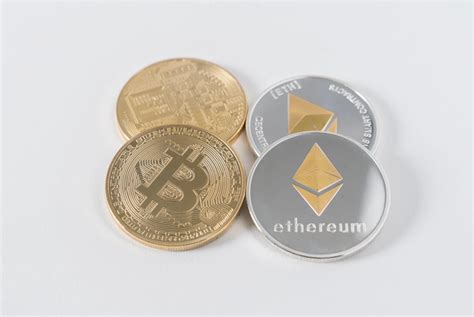The future of Ethereum (ETH) in decentralized finances: How the Crypto currency revolutionizes the financial world
In recent years, blockchain technology and cryptocurrency currency have been far from their modest beginnings. From Bitcoin to Ethereum, various crypto currencies appeared as leaders in the premises of decentralized finances (Dead). One such crypto currency that creates waves is Ethereum (ETH). With its strong platform of smart contracts and the strong ecosystem of decentralized applications (DAPPS), ETH has become an essential component of the landscape Deam.
What are decentralized finances?
Decentralized finances refers to the type of financial system that works independently of traditional central banks and governments. In the environment, the users can borrow, borrow and trade assets without the need for intermediaries. This approach eliminates the need for traditional financial institutions, which are often criticized for high fees, lack of transparency and vulnerability to manipulation.
The role of Ethereum (ETH) in decentralized finances
Ethereum was at the forefront of defining with his native crypt, ether (eth). The technology of smart contracts platforms allows developers to build a wide range of decentralized applications, from borrowing platforms to the prediction market. ETH is also used as a medium of exchange for various definers and assets.
In 2016, Ethereum published its first token decentralized finance (Dead), which provided customers to create their own borrowing protocols and other financial instruments. Since then, the platform has continued to expand its ecosystem by publishing new smart contracts, such as Uniswap and Sushy chancewap.
Decentralized Finance Logs (DAPPS)
One of the most significant contributions to Ethereum is a defined series of decentralized applications (DAPPS). These platforms offer a wide range of financial services, including:
* Borrower:

users can borrow an eth or other crypto currency boring at interest rates associated with the value of borrowed property.
* Deform Exchanges: Platforms like Sushiswap and Uniswap allow users to trade various crypto currencies without the need for intermediaries.
* Stablecoins: Stablecoin platforms, such as MakerDao Dai, allow users to trade stable stems with high degrees of liquidity and low risk.
Impact on Traditional Finance
The defense increase had a significant impact on traditional finances. The industry experiences a shift towards decentralized and transparent financial systems, which can lead to increased efficiency, lower costs and improved security.
Traditional banks are struggling to compete with the ease of use and accessibility offered by a defined platform such as Robinhood and Binance. Contrary to this, the definite protocols often lack the regulatory supervision and liquidity provided by traditional financial institutions.
Benefits of Ethereum (ETH) in Decentralized Finance
Benefits of Ethereum (ETH) U Define are numerous:
* Low fees: Decentralized nature of a definite protocol means that users can avoid high fees for transactions associated with traditional financial systems.
* High security: The use of smart contracts and cryptography ensures the immutability and transparency of definition of transactions.
* Accessibility: Define platforms offer a wide range of financial services to the global user base, making them available to people who may not have access to traditional financial institutions.
Challenges in advance
While Ethereum (ETH) has reached significant steps in define, there are still a few challenges that need to be resolved:
* Scalabiness: The limitations of current scalabulinity of the Ethereum network make it difficult for a definal large -scale application.
Leave a Reply